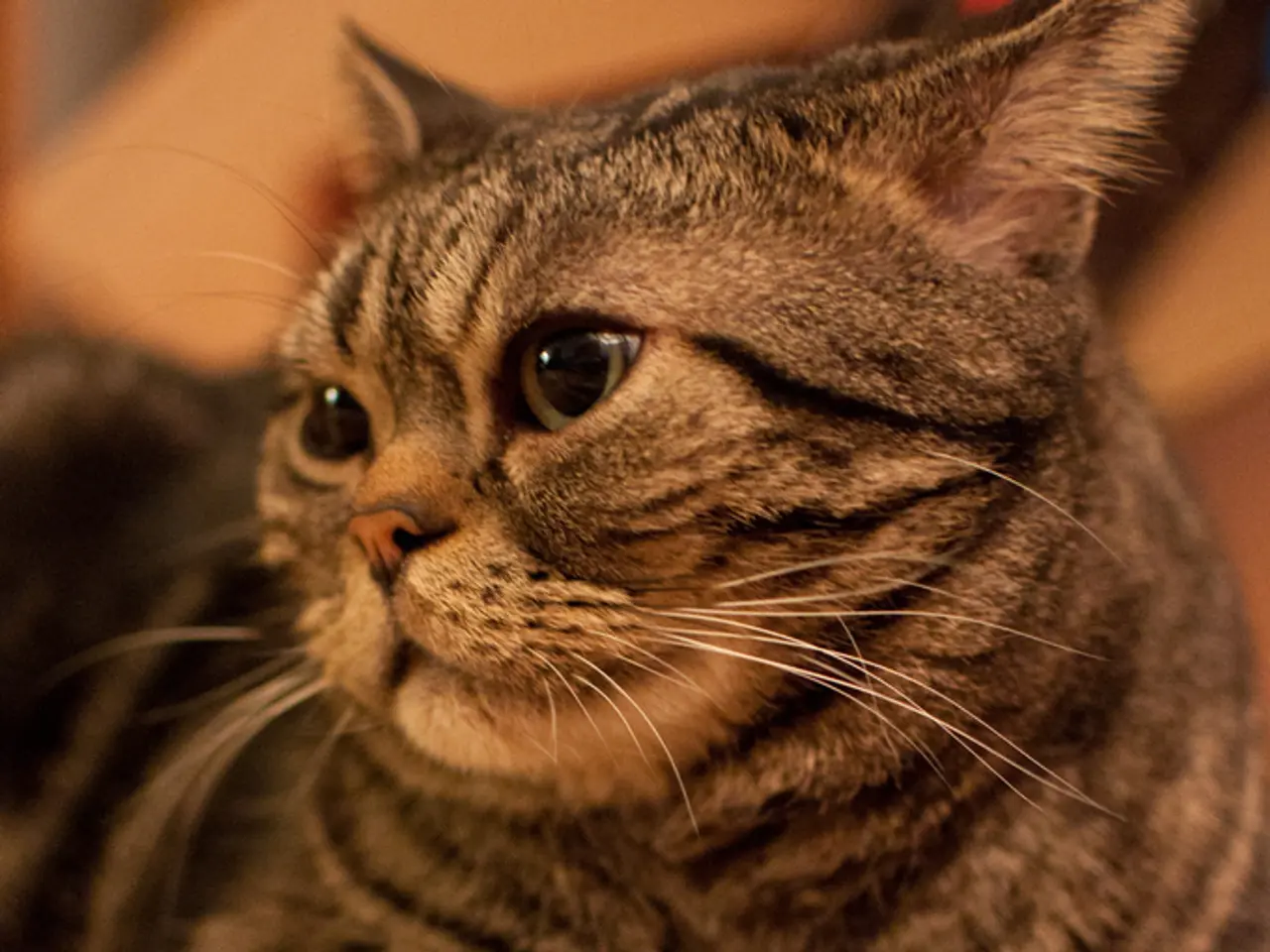Cats Strangely Pursue Affectionate Licking of Humans
Cats, often known as "scent machines," have a strong sense of smell and favour their own unique scent. This intriguing behaviour is at the heart of why they lick humans, a behaviour that is a complex interplay of trust, biochemical rewards, and social or territorial bonding.
1. **Trust and Affection (Social Grooming):**
Licking is an instinctive behaviour learned in kittenhood; mother cats lick their kittens to clean and comfort them, which establishes a feeling of security and love. Adult cats extend this behaviour to humans as a form of social grooming or allogrooming to express affection and strengthen social bonds. When a cat licks you, it is often communicating trust and closeness, similar to how they bond with other cats.
2. **Biochemical Rewards (Endorphin Release):**
Licking is soothing for cats because it releases endorphins in their brain, making them feel happy and relaxed. This self-soothing effect explains why some cats lick humans—it feels good to them, lowering anxiety and stress levels.
3. **Possession and Scent Marking (Territorial Bonding):**
Cats have scent glands in their saliva and on their faces. When they lick you, they are not only showing affection but also marking you with their scent. This communicates a sense of possession or territory, signalling that you belong to their social group, and they feel emotionally secure with you. It’s a subtle way of reinforcing trust, closeness, and emotional security within their perceived safe space.
4. **Additional Factors:** - Cats might lick because your skin tastes salty, which they find appealing. - Licking can also be a coping mechanism when cats are stressed or anxious or dealing with an underlying medical issue, so excessive licking should be monitored.
Dr. David Sands, a renowned expert in animal behaviour with a doctorate in ethology (animal psychology) from Liverpool University and over 25 years of experience at his animal behavioural clinic, explains these behaviours in detail in his book "Cats 500 Questions Answered." According to Dr. Sands, there are three main theories as to why domestic felines lick humans: trust display, biochemical information access, and marking as possession.
It's important to note that licking does not necessarily indicate a pre-mating ritual, as there's no evidence to suggest this. Instead, it's a sign that the cat does not consider the person it is licking as serious competition.
A University of Lincoln study found that cats appeared to bond as well with strangers as with their actual owners, suggesting that adult cats are typically autonomous and not necessarily dependent on others for a sense of security and safety.
In conclusion, cat licking behavior toward humans is primarily a multi-faceted expression of trust, affection, and social bonding, aided by biochemical rewards, and also serves as a way to mark ownership or possession in their social environment. Understanding this behaviour can help strengthen the bond between cats and their human companions.
- In addition to bonding with humans through social grooming, observing their owners' routine can also help cats feel at ease and secure in their home-and-garden environment, as they perceive these spaces as their territory.
- **The Importance of Scent:**
In the realm of pet psychology, a cat's strong sense of smell and preference for their unique scent extends to its interaction with humans. Cats may lick their owners as a way to mingle their scents, thus reinforcing their bond and signifying a shared territory.
- **Pets and Lifestyle:**
Similar to the role of nature in influencing a cat's behaviour, its influence can also be observed in human-cat interactions. Studies suggest that having a pet cat is associated with various health benefits, such as reducing stress, promoting relaxation, and even lowering the risk of heart disease, making it an integral part of many people's lifestyle.




